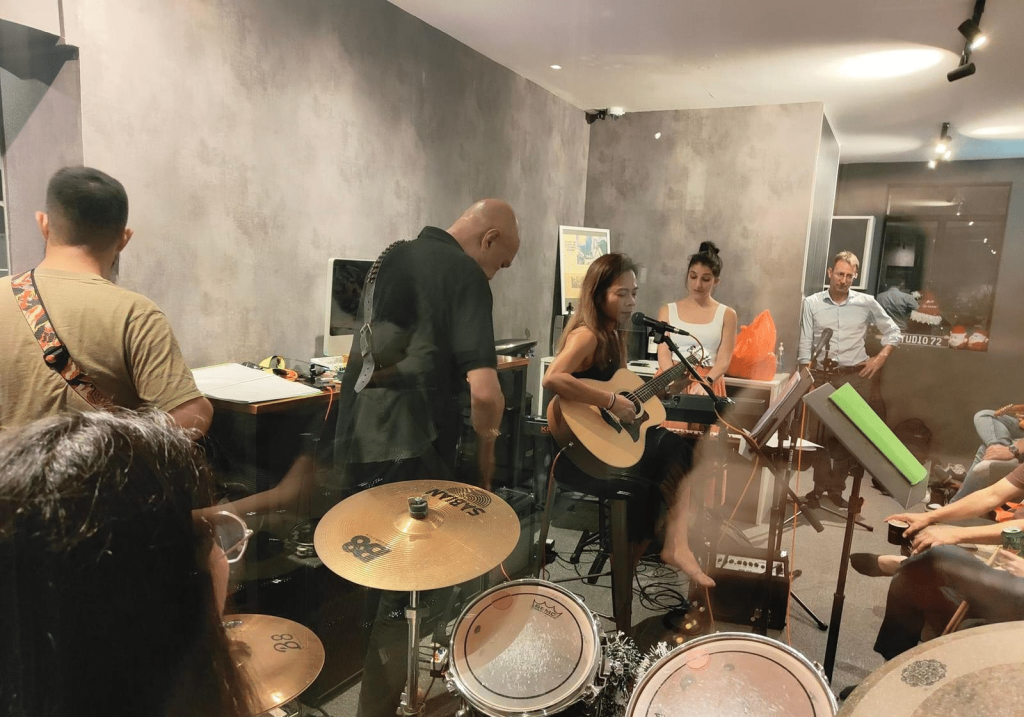Every vocal musician has a list of things they want to improve on in their singing, one of which is their vocal range. Many place this as their top priority for a variety of reasons, like stepping out of their comfort zone, branching out to new genres, or simply growing as a musician. No matter what yours may be, there are a few things to remember before starting your journey towards improvement. If you plan on taking music classes in Singapore or working with an online instructor, you will most likely encounter these tips, but preparing in advance is never a bad thing.
1. Determine your current vocal capabilities
If you aim for growth, the first and most important step is to understand where you are first. Knowing your vocal range entails examining your vocal abilities, technique, and limitations so you can work with a proper baseline. From there, learn what your highest and lowest notes are and establish your goal. Do you wish to sing lower or higher? Perhaps a mix of both? Or maybe move a whole octave entirely? Taking lessons provides the benefit of having an instructor that can help you with these elements.
2. Mind your posture
If you have ever been a part of a choir or had vocal training for an extensive time now, you are likely already aware of the importance of your posture, as harped on countless times by your instructor. This is because observing proper posture is critical to maintaining technique as it lends more power and strength to your vocals, which is an absolute must when expanding vocal range.
Proper posture starts with standing straight with shoulders back while opening up below the collarbone. Next, bend the knees slightly, space your feet shoulder-width apart, and keep your arms relaxed at the sides unless you are holding something like a microphone.
3. Don’t neglect your warm-ups
If you have ever attempted to sing or rehearse a song with tense muscles, you know well how counterproductive it can be. Doing so limits your vocals and puts you at a higher risk of strain or damage. This more so applies when you try to reach very high or low notes.
Warming up properly alleviates this issue, so run through a few scales and perform other vocal exercises. Besides vocal warm-ups, warming up also includes focusing on your entire body, so take the time to fully relax with some neck stretches, shoulder shrugs, and head rolls to relieve tension. If you will be standing for the entirety of the rehearsal session, warm up your legs as well and keep in mind not to fully extend your knees.
4. Exercise patience
Growth and change take time, which is something that a musician like yourself should be well familiar with by now. Thus, do not expect to make drastic changes to your vocal range overnight. By exercising patience throughout this endeavour and staying dedicated to improving, your desired results will surely be within grasp soon.
It is also important to remember that everyone has their limits. Despite putting in your best effort, there is no guarantee that you will manage to hit that incredibly high note or move a whole octave. That said, your efforts will not be in vain, as you will surely progress and achieve your goals.
5. Prioritise your vocal health
For vocal musicians, their voice is their instrument. Like any other instrument, it must be maintained and cared for, like keeping a piano tuned regularly or replacing a guitar’s strings. Since we use our voice all day for many other things besides singing, we often put our vocal health on the back burner. Given that a healthy voice directly aids in expanding your vocal range, it is therefore important not to neglect this crucial aspect that lets you become a better singer overall.
A few tips to ensure your voice is well taken care of are:
- Get a good night’s rest by sleeping seven to nine hours nightly
- Avoid whispering or yelling as it strains your vocal cords
- Don’t eat extremely acidic or spicy foods
- Stay hydrated throughout the day to prevent tiring your vocal cords quickly
- Drink alcohol in moderation or avoid it entirely
Conclusion
Expanding your vocal range takes time and effort but is undoubtedly gratifying once you reach your goal. That said, take note of the tips above to protect your voice and never overdo it or push yourself too hard to prevent injuries and any serious vocal strain that could lead to long-term consequences.
Unlock your full potential as a musician with Studio72 where we provide the best drum lessons in Singapore, alongside guitar courses and singing lessons. With the help of our passionate and experienced music teachers dedicated to your improvement, you will surely see rapid progress in your musical skills, whether in singing, playing the drums, rocking out with the guitar, or simply learning music. Get in touch with us today to learn more about our lessons and get started as soon as possible!






